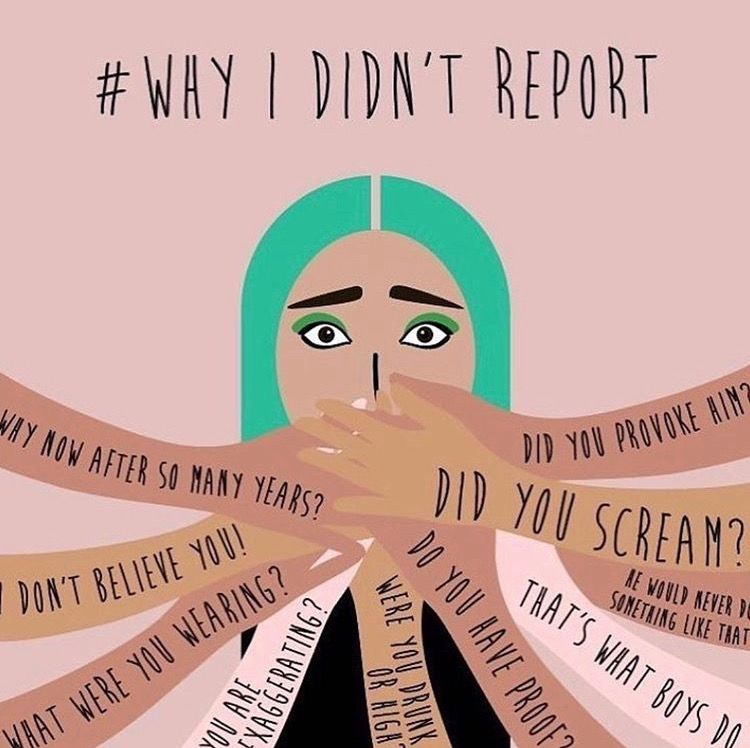The Centre for Economic Data & Analysis (CEDA)’s report, ‘A Decade of the POSH Act: What the Data Tells Us about How India Inc. Has Fared‘, offers a valuable analysis of the effectiveness of the Prevention of Sexual Harassment (POSH) Act in Indian workplaces. While the report highlights a positive increase in reported cases, it also unveils gaps in implementation and a need for further action.
The report’s most encouraging finding is an increase in reported sexual harassment instances since the POSH Act was implemented in 2013. This suggests that some women are becoming more aware of the situation and are willing to speak up. The number of complaints is growing faster than the number of complaints that have been resolved.
However, only a small number of businesses have reported incidences, while others have reported no cases, often for years. Almost 80 per cent of the reported incidents occurred in larger businesses (top 100 on the National Stock Exchange). Medium reports a low number of events and no cases from smaller firms. This shows severe underreporting, raising concerns about the Act’s genuine effectiveness.
Companies are also required to report the number of unresolved and pending complaints at the end of each fiscal year. The act requires that probes into complaints be completed within 90 days. The number of pending complaints for these companies has likewise increased over time as given in the report.
However, it is worth noting that the number of outstanding cases is less than the difference between reported and settled instances. This could be the result of a variety of events, including the complainant withdrawing their complaint and/or either the complainant or the accused quitting the company.
Low reporting rates
The low reporting rates raise major questions about the POSH Act’s usefulness in providing safe workplaces for women in India.

Here are some possible explanations and areas for further action:
1. Underreporting: The findings strongly show that underreporting is a big issue. Fear of reprisal, societal stigma, and a lack of trust in the complaints procedure can all deter survivors from coming forward. Measures to address these issues and foster a safe reporting environment are critical.
2. Non-Compliance: The fact that some businesses, particularly smaller ones, may be unaware of their requirements or purposefully fail to report reveals a potential compliance gap. Stricter enforcement methods are necessary.
3. Ineffective Internal Mechanisms: The report mentioned that half of the companies had not set up Internal Complaints Compliance to investigate the quality of Internal Complaints Committees (ICCs) authorised by the Act. Poorly trained or biassed ICCs may further discourage reporting. Strong training and clear criteria for ICCs are required.
4. Lack of Awareness: Many employees, particularly those in informal or lower-level roles, may be uninformed of their rights under the POSH Act. This lack of understanding may hinder them from coming out and reporting harassment events.
5. Fear of Retaliation: Employees, particularly those who are financially dependent on their employers, may be hesitant to report harassment for fear of being ostracised, demoted, or even terminated.
Empowerment via awareness
Comprehensive awareness campaigns are the foundation of a successful fight against harassment. These programs must educate personnel at all levels, across industries, and in several languages. Workshops, training programs, and instructional resources in easily accessible formats can be useful in this regard. Employees can detect and report harassment events if they understand their rights under the POSH Act.

Effective enforcement methods are required to ensure compliance with the POSH Act. The government should tighten its monitoring by conducting frequent audits of corporations to ensure compliance with reporting obligations. The penalties for noncompliance should be severe enough to serve as a deterrence. This will encourage corporations to take the POSH Act seriously and implement robust internal prevention and complaint resolution mechanisms.
Creating a supportive work environment
Organisations play a critical role in building a work atmosphere that promotes open communication and a zero-tolerance policy for sexual harassment. This includes creating clear guidelines and effective complaint systems. The complaint process should be well-defined, confidential, and carried out by independent Internal Complaints Committees (ICCs) with the requisite skills. Furthermore, organisations can build a culture of respect by encouraging open communication channels through which employees feel comfortable addressing issues.

Campaigns supporting women’s empowerment are critical to addressing sexual harassment at its root. This can include financial independence programs that allow women more control over their lives, legal aid services that provide them with the tools they need to seek justice, and mentorship opportunities that connect them with experienced professionals who can offer advice and support. Empowering women gives them the confidence and resources they need to speak out against harassment and handle the complaint process effectively.
Transforming societal attitudes
Transforming societal attitudes is critical to accomplishing long-term change. Educational efforts and cultural debates can be effective in countering victim-blaming narratives and encouraging empathy for survivors. By encouraging open talks about gender equality and respect in the workplace, social views can gradually evolve towards a culture of zero tolerance for harassment.
Limitations of the Data
The data supplied by CEDA provides a troubling picture of the POSH Act’s implementation in India. While the Act provides a legislative framework, considerable work remains to be done to bridge the theoretical and practical gaps. Addressing underreporting, maintaining compliance, and cultivating a culture of gender equality are critical steps towards providing a safe and respected workplace for all.
It is critical to recognise that the data supplied only provides a glimpse into a certain sample of organisations. Further research can look into how these tendencies play out across different industries and firm sizes. Furthermore, the graph does not display the overall number of complaints submitted each year, only the reported cases by firm category. This prevents a thorough knowledge of reporting trends.
Future research might look deeper into the experiences of survivors and bystanders, assess the efficacy of interventions targeted at improving reporting, and investigate the role of various stakeholders (government, NGOs, and media) in accomplishing long-term change. India can aim towards sexual harassment-free workplaces by combining legal frameworks, cultural reforms, and strong enforcement measures.
About the author(s)
With a passion for storytelling and a keen interest in human behavior, Iti Dewangan is currently honing her skills in journalism, psychology, and English Literature. Having contributed to esteemed organizations like The Wire, Iti is dedicated to amplifying voices, uncovering truths, and making a positive impact through her writing. With a vision to become a respected journalist, she endeavors to navigate the ever-evolving media landscape with integrity, empathy, and a commitment to truth.





